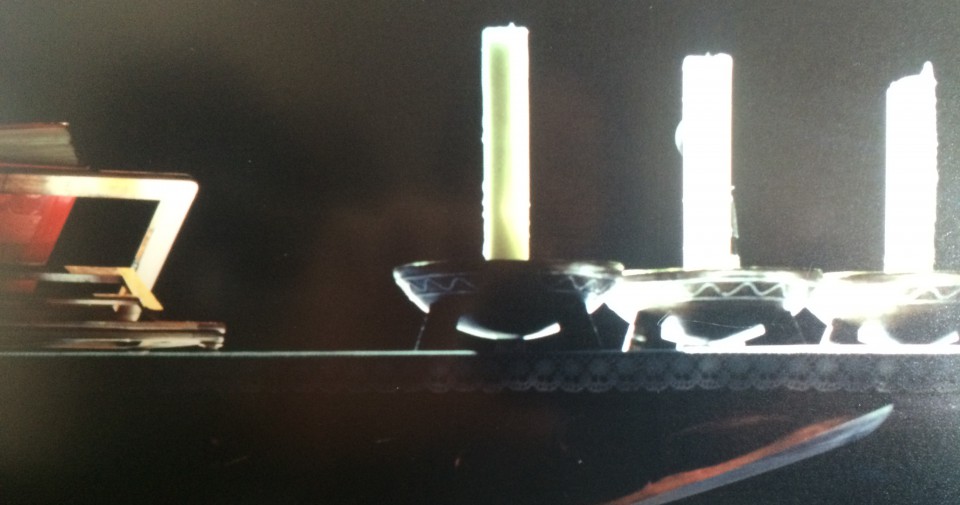 |
| “The Road to Emmaus” by Caravaggio |
In the last chapter of Luke’s gospel we are given the Emmaus story. The risen Lord joins two disciples on the road and fully reveals himself to them in the breaking of the bread whereupon he vanishes from their sight. Prior to this, when they are still on the road and the Lord makes as if to continue on, the disciples make this request, “Stay with us, for it is toward evening and the day is now far spent.” (Lk. 24:29)
This Sunday, as the Church celebrates the Feast of the Body and Blood of Christ (or Corpus Christi), I would suggest this request of the two disciples as a way of exploring this holy mystery of the Eucharist at the heart of the life of the Church.
Notice first of all that it is a request. The Church does not own nor control this mystery. We cannot command the presence of God. At heart, all we can do is request, ask and when God is present – live in gratitude. Earlier today I was at the ordination of Fr. Christopher Manning – the newest priest to be ordained to the Diocese of Knoxville – and in his homily, Bishop Richard Stika, spoke of the danger of seeking to control the Eucharist and form it through our thought and perception into our image rather than letting the Eucharist transform and change us. We do not transform the Eucharist (when we attempt to do so we get into trouble both individually and even as “church”) rather the Eucharist transforms us. When we receive the Eucharist we need to let this dynamic reality occur and we need to entrust ourselves to this movement of extraordinary grace. The language of request acknowledges and respects this graced encounter that can never be controlled on our part. “Stay with us…”
Secondly, notice that it implies relationship. Our awareness of the mystery of the Eucharist grows as our relationship with Christ as Lord and Savior grows and our lived acknowledgement of Christ as Lord and Savior grows just as our humble entering into the mystery of the Eucharist increases. Relationship is a lived reality, it is a give and take exchange. The mystery of the Eucharist (like any relationship) cannot be “proven” from the outside. It must be entered into, in order to be encountered and experienced. This “entering into the mystery” is not just a matter of filling a spot in a pew on Sunday either. It is a dynamic of the heart and the heart’s willingness to enter relationship.
The breaking of the bread and Christ giving himself in the form of bread and wine occurs on the road. The Eucharist is often referred to as “bread for the journey”. While in this world – as individual pilgrims and as church – we are always on the journey. We are on journey toward the Kingdom of God and beyond that which holds us bound. The Eucharist is not prize for the victor who has won solely on his or her own abilities rather, it is food for the pilgrim on the journey, who often stumbles and who can even take wrong turns and get lost sometimes. We need the Eucharist. We need it’s transforming grace.
The Eucharist nourishes and refreshes us from the struggles of life. The weariness of life can be heard in the request of the disciples who just had their hopes dashed by the cross on Calvary. “…it is toward evening and the day is far spent.” In a truly divine way, the Eucharist nourishes and refreshes us as we also encounter the pains and struggles of life. The subtlety of the Eucharist is one of the great paradoxes and stumbling blocks in the eyes of the world. In the simple receiving of what appears on the surface to be only bread and wine the very life of God is given to us and received by us! God’s power is revealed exactly in not having to act through flash and show but rather in giving of Himself in a subtle presence. A discerning and maturing heart begins to recognize this. The Eucharist nourishes and opens our eyes to the ways of God.
In his first letter to the Corinthians (1 Cor. 11:23-26), Paul recounts what he himself had received and now, what he himself, hands on. “…that the Lord Jesus, on the night he was handed over, took bread, and, after he had given thanks, broke it and said, ‘This is my body that is for you. Do this in remembrance of me.’ In the same way also the cup, after supper, saying, ‘This cup is the new covenant in my blood. Do this, as often as you drink it, in remembrance of me.” Before the gospels were written, before the canon of Scripture had been codified, before Christianity was legally recognized and no longer persecuted, the Eucharist was being celebrated.
The first Christians encountered the living Lord in the breaking of the bread … this same encounter continues today.
